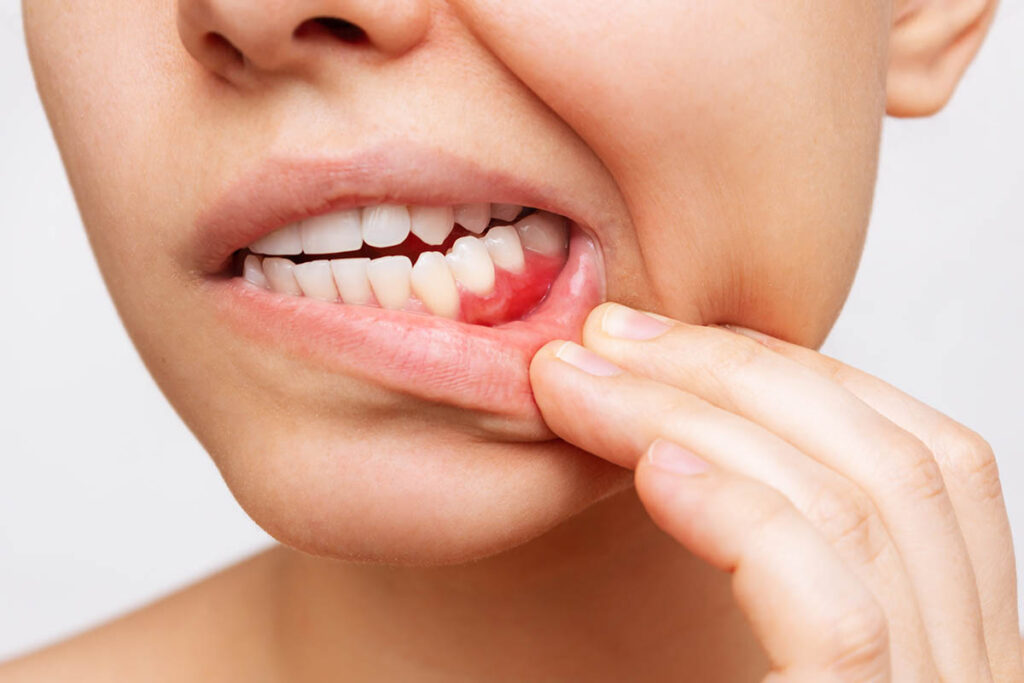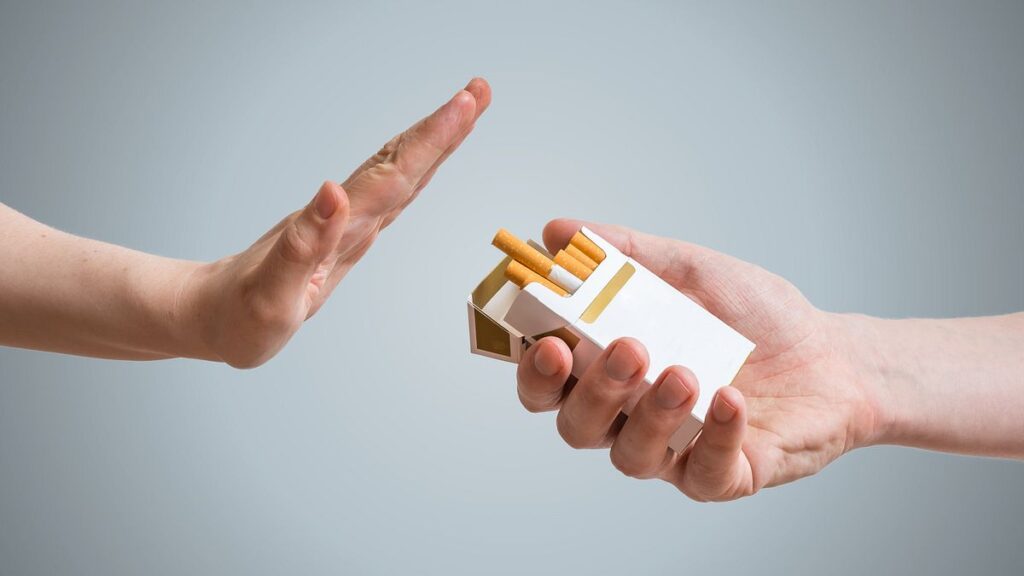
Battle Receding Gums: Take Steps to Avoid Further Deterioration
Introduction to Receding Gums
Receding gums is a condition where the gum tissue around your teeth wears away. It can leave teeth looking longer and your gums looking red and inflamed. This can cause discomfort and increase the risk of tooth decay and gum disease. If left untreated, receding gums can get worse over time. That’s why it’s important to stop receding gums from getting worse.
This guide will help those looking to stop their receding gums from getting worse. We’ll look at the causes of receding gums, healthy oral hygiene habits, diet and nutrition, stress management, quitting smoking, visiting the dentist, surgical procedures, products, natural remedies and prevention tips. By following the advice in this guide, you’ll be able to protect your gums and keep them healthy.
Identifying the Causes of Receding Gums
Receding gums can be caused by a number of different factors, including periodontal disease, plaque buildup on the teeth, smoking, genetics, and more. It’s important to identify the cause of your receding gums in order to stop them from getting worse.
Periodontal disease is an infection of the tissues around the teeth, caused by bacteria that form a sticky film called plaque. Plaque buildup on the teeth can lead to inflammation and gum recession. Smoking can contribute to gum recession by impairing the flow of blood to the gums, making them more prone to infection.
Genetics can also play a role in how susceptible a person is to receding gums, as it can affect their oral hygiene habits and the bacteria found in their mouth. If a family member has receding gums, it is likely that you may have an increased risk as well.

Healthy Oral Hygiene Habits
When it comes to preventing receding gums from getting worse, healthy oral hygiene habits are essential. This includes brushing your teeth twice a day, flossing daily and using mouthwash. Regular tooth brushing helps remove plaque, a sticky film of bacteria that builds up on teeth, eventually leading to gum disease.
Flossing every day helps to remove food particles and plaque between your teeth, helping to keep your gums healthy. Using a good quality mouthwash can also reduce the amount of bacteria in your mouth and help prevent gum disease.
It is also important to make sure you’re using the right technique when brushing and flossing. Make sure to brush for at least two minutes each time, using circular motions and paying special attention to hard to reach areas. When flossing, make sure to use a gentle sawing motion to avoid damaging your gums.
Diet & Nutrition – Eating Healthy to Reduce Gum Recession
Taking care of your diet is essential for keeping your gums healthy. This means avoiding sugary foods and drinks, as well as processed food that can increase the rate of gum recession.
It is important to eat a balanced diet to maintain good dental health. Include plenty of fruits and vegetables, whole grains, lean proteins, healthy fats, and dairy products. These can help keep your teeth and gums strong and help reduce gum recession.
Limit sodas, energy drinks, and other sugary beverages. These contain a lot of sugar and acids, which can damage the enamel of your teeth and weaken your gums. Additionally, avoid sticky and chewy candies or sugary snacks as these can be very damaging to the gums.
Eating crunchy foods can help to remove plaque and food particles that are stuck between the teeth and gums. Fruits and vegetables like carrots, celery, apples, and pears are great choices. Raw nuts and seeds can also help to scrub away bacteria.
Drinking more water is not only beneficial for your overall health, but it can also help to wash away food particles and provide hydration to the gums.
Adopting healthy eating habits is an important step in preventing receding gums and having a healthy mouth. It is essential to have a balanced diet to support the health of your teeth and gums.

Stress Management for Healthy Gums
Managing stress and anxiety is an important part of maintaining good oral health. Stress can have an adverse effect on gums, leading to gum recession. By implementing stress management techniques you can help to prevent further receding of the gums.
When we are stressed, our body releases hormones that can cause inflammation in the mouth. This inflammation can lead to gum recession and can also damage the attachment of the gums to the teeth. It’s therefore important to practice methods to reduce stress in order to protect your gums.
Some methods to reduce stress include:
- Exercising regularly to release endorphins and relax the body.
- Practicing mindfulness and meditation to help clear your mind.
- Taking breaks from work regularly.
- Talking to a therapist if needed.
- Using relaxation techniques such as deep breathing or yoga.
By implementing these stress management techniques you can help to reduce the risk of receding gums. Additionally, it’s important to remember to take care of yourself and get enough sleep and rest so that your body can handle the stressors of your daily life.
Quit Smoking
Smoking is one of the most dangerous habits when it comes to protecting our gums. The harmful substances found in cigarettes, such as tar and nicotine, can cause inflammation and dryness in gums, leading to receding gums over time. In addition, smoking can decrease the effectiveness of oral hygiene practices by reducing saliva flow and resulting in plaque build-up. Therefore, quitting smoking is essential for preventing further gum recession.
While kicking the habit isn’t easy, there are ways to make it easier. Talk to your dentist about any options for quitting smoking. There are also nicotine replacement therapies, such as gums and patches, which can help you gradually reduce your dependency on cigarettes. Finally, seek support from family and friends, and try to find activities that you can enjoy in place of smoking.
The good news is that even after quitting, receding gums can be reversed. With the proper care, such as following the advice given in this guide, you can stop receding gums from getting worse and start restoring them to their former glory.

Visit the Dentist
Regular dental check-ups are an important part of maintaining optimal oral health, and protecting your gums from receding. During a dental visit, your dentist will carefully examine your mouth and gums for signs of gum recession. This is done to ensure that any signs of receding gums are caught early and treated promptly.
Your dentist may also be able to provide advice on how to better take care of your gums, such as flossing correctly or brushing teeth more often. A professional dental cleaning can also help remove plaque buildup that can lead to receding gums.
In some cases, treatment may be needed to stop or slow down gum recession. During a visit to the dentist, they may suggest procedures such as scaling and root planing, deep cleaning, or gum grafts. Your dentist will be able to discuss the best course of action for your specific case.
If you have any concerns about your gum health, it’s essential that you seek professional help and make sure to visit your dentist regularly.
Surgery to Stop Receding Gums From Getting Worse
Sometimes, receding gums can become so severe that the only option left is to undergo a surgical procedure. While this may sound intimidating, there are many available surgical options that can help stop or reduce further gum recession.
The type of procedure chosen will depend on your individual situation and the extent of your gum recession. Your dentist or periodontist may opt for one or more of the following procedures:
- Gingival flap surgery – This procedure is used to reduce the level of plaque and bacteria around the teeth. The dentist or periodontist will lift the gums to access areas underneath and remove any tartar buildup. They will then pull the gum tissue back over the tooth and stitch the area.
- Bone grafting – This procedure involves having bone material taken from another part of the body, such as the chin or hip, and transplanted into the jawbone where the receding gums have caused bone loss. Over time, the bone material will form new bone and help strengthen the jawbone.
- Soft tissue grafts – This procedure involves taking soft tissue from another part of the mouth, usually the roof of the mouth, and transplanting it over the area where the gums have receded. This graft helps to provide support and protection to the exposed root surface.
- Enamel Matrix Derivative (EMD) – EMD is a special gel-like material that is applied to the exposed root surface to encourage the growth of gum tissue. The EMD also helps to protect the exposed roots by forming a protective barrier.
These procedures can help to stop the progression of gum recession and even allow for the gum tissue to reattach itself to the teeth. However, these procedures cannot prevent receding gums from happening again in the future. For this reason, it is important to follow the advice in this guide to keep your gums healthy and prevent any further gum recession.
Products to Help with Receding Gums
There are a range of products available that can help with reducing gum recession. These include special toothpastes, mouthwashes, and saliva stimulators, all designed to help protect your gums from further recession.
Toothpaste containing fluoride is known to help strengthen the teeth and protect against gum recession. Similarly, an antibacterial mouthwash can help remove bacteria from your mouth and reduce plaque buildup.
Saliva stimulators can also be used to help prevent gum recession. They work by increasing the production of saliva in your mouth, which helps to wash away both food particles and bacteria. This can help protect your teeth and gums from further damage.
It’s important to talk to your dentist before using any products to stop receding gums. Your dentist can advise you on which products would be best suited to your individual situation.
Natural Remedies to Stop Receding Gums
If you’re looking for a natural way to stop receding gums, there are several ways to do so. Coconut oil, tea tree oil, and aloe vera are just a few of the natural ingredients you can use to help reverse or stop gum recession. Here are some tips and recipes you can use to help keep your gums healthy and avoid further recession.
Coconut Oil
- You can use coconut oil as a mouthwash to help reduce inflammation and heal the gums.
- Simply swish 1-2 tablespoons of coconut oil in your mouth for about 5 minutes and then spit it out.
- Do this twice a day for best results.
Tea Tree Oil
- Tea tree oil is excellent for fighting bacteria and inflammation in the mouth.
- Mix a few drops of tea tree oil with 1 tablespoon of coconut oil and swish it around in your mouth for 3-5 minutes.
- Do this once a day for best results.
Aloe Vera
- Aloe vera contains healing and anti-inflammatory properties to help heal damaged gums.
- Apply some aloe vera gel directly to your gums and leave it on for 2-5 minutes, then rinse your mouth with warm water.
- Repeat this once a day to help stop your receding gums from getting worse.
By using these natural remedies, you can help improve the health of your gums and stop them from getting worse. However, if you experience any discomfort, be sure to visit your dentist to get a professional opinion.
Preventing Receding Gums
Being proactive and taking preventive measures is the best way to avoid receding gums. Taking steps such as brushing your teeth twice a day using a soft-bristled brush and flossing regularly will reduce the risk of gum recession. In addition, limiting your consumption of sugary foods and drinks and avoiding smoking can also help prevent gum recession.
Here are some more tips that you can use to protect your gums and keep them healthy:
- Visit your dentist for regular cleanings and checkups. This will help spot any areas of concern early on.
- Eat a diet rich in vitamins and minerals. This will help to strengthen your gum tissue.
- Reduce stress as this can weaken your gums.
- Try natural remedies such as oil pulling, gargling with salt water, or rinsing with a warm herbal tea.
- Opt for products specifically designed to help fight gum recession, such as special toothpastes, mouthwashes, and saliva stimulators.
Remember, taking preventive action is essential for protecting your gums from further recession and keeping them strong and healthy. If you follow the advice in this section, you’ll be well on your way to stopping your receding gums from getting worse.
Conclusion
This guide has outlined a number of strategies for preventing and stopping receding gums from getting worse. Following the advice given here can help people keep their gums in healthy condition and halt or even reverse the effect of gum recession. Healthy oral hygiene habits, proper diet and nutrition, quitting smoking, regular dental visits, and natural remedies can all help to improve gum health. In addition, understanding the causes of gum recession can help prevent it from happening in the first place.
Ultimately, taking the steps outlined in this guide can really help people stop their receding gums from getting worse, preserve the health of their teeth, and maintain a cheerful smile.
Frequently Asked Questions about Receding Gums
- Q: What are receding gums?
A: Receding gums is a condition where the gum line pulls away from the teeth, leaving behind exposed tooth roots and creating pockets of space. It is caused by plaque buildup and periodontal disease, as well as lifestyle factors such as smoking, genetics, and poor oral hygiene habits. - Q: What are the effects of receding gums?
A: Receding gums can lead to tooth sensitivity, difficulty with eating and talking, reduced self-esteem due to changes in appearance, and an increased risk for other dental issues, as well as diseases of the heart and lungs. - Q: How can I stop my receding gums from getting worse?
A: There are many ways to help stop your receding gums from getting worse, such as having healthy oral hygiene habits, eating a balanced diet, managing stress and anxiety, quitting smoking, visiting the dentist regularly, considering surgery, and using special products like toothpastes, mouthwashes and saliva stimulators. - Q: Is there any natural remedies that can help?
A: Natural remedies such as coconut oil, tea tree oil and aloe vera can help reduce inflammation of the gums and reverse or stop receding gums. - Q: What are the best proactive steps to take to prevent gum recession?
A: The best proactive steps that people can take to protect their gums and avoid receding gums include brushing and flossing regularly, eating a healthy diet low in sugar and processed food, avoiding smoking and using special products like toothpastes and mouthwashes. - Q: What kind of surgery is available to help stop or reduce gum recession?
A: Some of the surgical procedures that can help stop or reduce further gum recession include flap surgeries, osseous surgery, and laser surgery. - Q: How often should I visit the dentist?
A: It is recommended to visit the dentist at least every six months for regular cleanings and checkups in order to ensure optimal dental health and check for any signs of gum recession.
